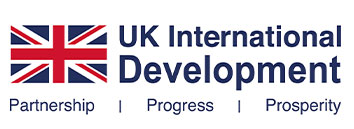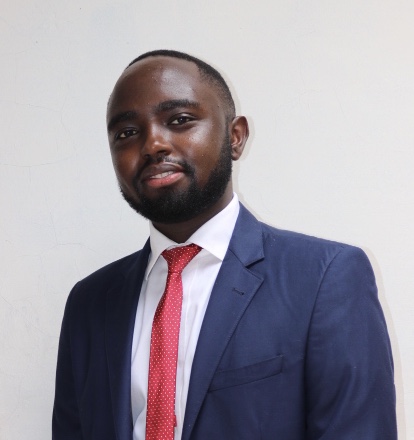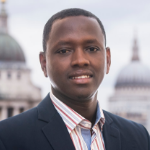In January 2024, the Digital Utilities programme together with Freetown Waste Transformers, hosted a forum on waste management in Freetown, Sierra Leone. The forum brought together over 40 participants in waste management and its adjacent sectors to discuss the challenges of waste management in the city and the opportunity for digital solutions and innovative partnerships to solve them.

Waste management in Freetown
In Freetown, a city of 1.3 million people, only about 30% of the waste generated is safely disposed of. With only two official dumpsites, the rest ends up in illegal dumpsites, on the streets or flowing into the Atlantic Ocean. This means that of the approximately 550 tonnes of waste produced daily– with two-thirds of this being organic waste, 400 tonnes end up strewn across the city or entering the environment. Freetown City Council, through its sanitation and environment department, manages the collection of waste in public spaces such as markets, bus parks and streets. They work with youth groups who sweep and collect the waste while the Council provides trucks and tricycles to transport the waste to the landfills. Household waste, on the other hand, is largely handled by private waste service providers and informal collectors. To serve both businesses and households, the city is strengthening its waste management system through targeted investments in infrastructure and labour, where currently one in every six council staff works on waste.
With the amount of waste produced globally increasing rapidly, there is a need to improve waste management systems to curb the looming crisis that already has adverse effects on livelihoods and climate. Climate change is contributing to more intense and erratic rainfall, putting an estimated 218 million people globally at risk of plastic-aggravated flooding. Freetown is no exception, and has long suffered from flash floods and landslides that have claimed thousands of lives and left many more people displaced. These disasters are exacerbated by waste-related hazards such as clogged drainages and accumulated solid waste.
It is in this context that the GSMA’s Digital Utilities programme and Freetown Waste Transformers (FWT) sought to bring together start-ups, government officials, enabling organisations and the private sector to discuss best practices and map the way forward in improving waste management in Freetown. This blog highlights some of the key takeaways from the forum.
Highlights from the forum
The convening provided an opportunity for diverse stakeholders to share their current projects and explore potential synergies. Kweku Lisk Esq, the Deputy Mayor of Freetown kicked off the session with a keynote address, emphasising the importance of sustainable waste management in the city and the steps that the Council is taking. To build a clean and healthier city, the Council targets to have at least 60% of all solid and liquid waste safely collected and disposed of.

A waste collector getting paid via the DortiBox app for waste collection service.
The Deputy Mayor announced their collaboration with FWT to adopt and popularise a digital waste management system leveraging the ‘DortiBox’ app. The app was developed through the support of the GSMA Innovation Fund, and enables households to request and schedule waste pick-ups, track the collectors, and conveniently pay for waste collection through mobile money. Soon, the city’s 196,000 households and 21,000 businesses will be mandated to use the app for waste collection, ensuring timely collection schedules while generating revenue for the city which can be reinvested into improving waste management infrastructure.

One of the panels featuring (from left to right): Brian Njoroge, Insights and Advocacy Analyst- GSMA, Aminata Dumbuya-Jarr, CEO and Founder- Freetown Waste Management, Abdul Malik Tejan-Sie, Director- Directorate of Science, Technology and Innovation, Joe Abass Bangura, Chief Corporate Affairs Officer- Africell, and James Beah, Partnerships Manager- Orange Money Finance Sierra Leone.
The forum also featured several panels to allow for dialogue and discussions among participants. The workshop yielded several crucial insights for enhancing waste management practices in Freetown:
- The need to establish effective communication and coordination among stakeholders in the waste management value chain to streamline operations and efficiently address challenges. During the discussion, different organisations realised that they were all working towards the same goal of reducing waste in Freetown but were facing similar challenges such as the lack of household awareness on proper waste management practices. Purposeful collaboration among waste management providers could lead to the amplifying and scaling of their efforts.
- Increased government involvement in the waste sector through the Council’s enforcement measures of waste management by-laws. Most households have yet to adopt safe waste management practices as the local government does not mandate them to safely dispose their waste. Were the Council to enforce a mandate, it would be a win-win situation for both the city and the providers, as Freetown would be cleaner and healthier, and the waste collectors could expand their income.
- Enabling a digital ecosystem through institutions such as the Directorate of Science, Technology, and Innovation (DSTI) which could play a pivotal role in promoting awareness of digital solutions and fostering information exchange. Mobile operators and successful digital service providers such as the Freetown Innovation Lab can work together to support early-stage solutions that have the potential to solve major societal challenges.
- Learning from and building upon successful initiatives to enhance the overall effectiveness and impact of current waste management efforts. For example, new initiatives such as the World Bank’s Resilient Urban Sierra Leone Project and UNDP’s Zero Waste initiative, could learn from FWT, Masada, and the Sierra Leone Urban Research Centre who have done similar work.

Conclusion
The forum showcased how digital innovation can enhance sustainable waste management practices and provided a platform to facilitate knowledge sharing and partnership formation. Our programme has always sought to host such forums across cities in Africa and Asia, working alongside local partners to bring together relevant stakeholders working in urban service provision. Besides Freetown, we have also held workshops in Lagos, Islamabad, Kigali and Kathmandu, and we always look forward to further opportunities to engage with cities.
We would like to thank all the attendees for their time and contribution and hope the forum spurred the conversation on the critical role of digital innovation and partnerships in tackling Freetown’s waste management challenges. In the words of the Deputy Mayor of Freetown:
“The future of waste management in Freetown is digital, data-driven and collaborative.”
The Digital Utilities programme is funded by the UK Foreign, Commonwealth & Development Office (FCDO), and supported by the GSMA and its members.




